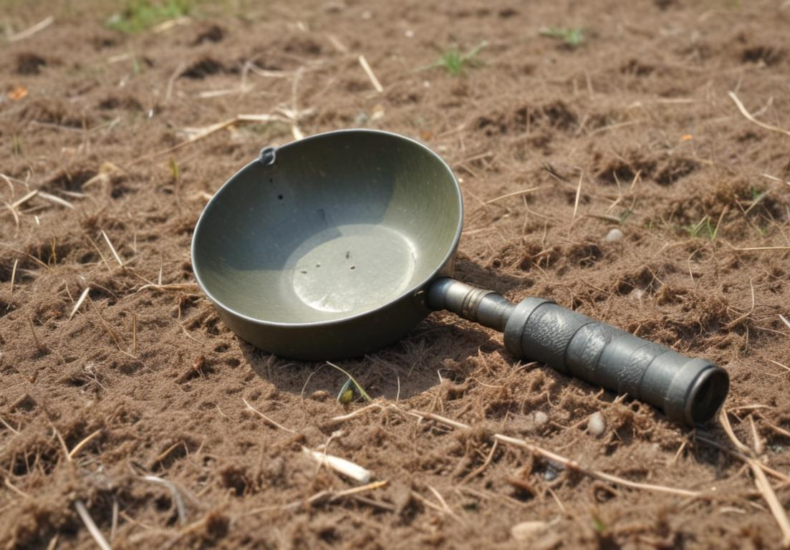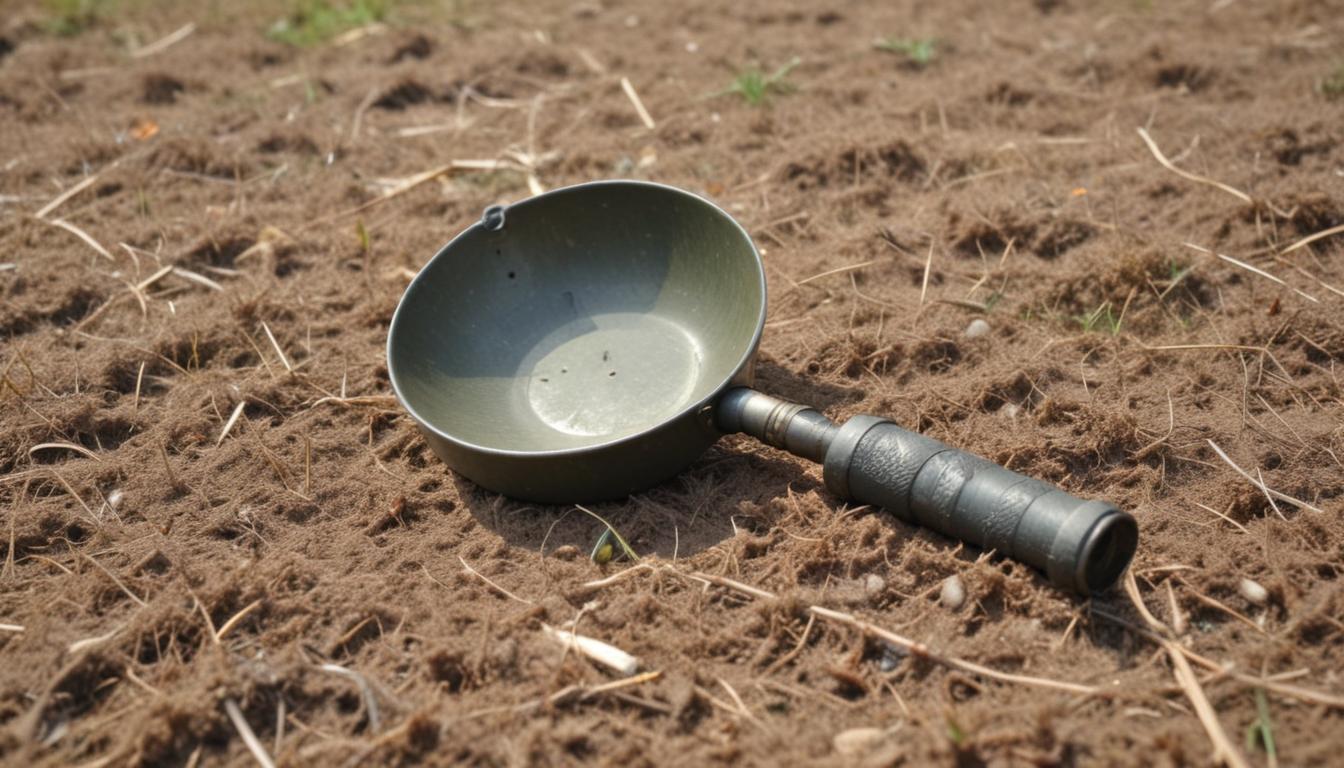
Tips for organizing a metal detecting hunt event
Organizing a successful metal detecting hunt requires a careful and strategic approach. Start by setting a clear objective for the event. Whether it’s a casual outing with friends or a more structured competition, defining the purpose will help you make other key decisions. Consider the target audience for your metal detecting event; is it geared towards families, enthusiasts who enjoy historical sites, or perhaps a group hunt tailored for community bonding?
Once the purpose and audience are established, select a date and duration for the event. Avoid holidays or busy community days unless your event is directly related or beneficial to such occurrences. Also, check the weather forecasts around your chosen date to decrease the chances of running into bad weather, which can impact attendance and enjoyment.
Next, outline your budget. Account for costs such as permits, rental fees for the location, necessary equipment, prizes for contests, and promotional materials. If the budget allows, consider amenities like refreshments or portable restrooms to enhance comfort on site.
As part of the planning process, start drafting an agenda for the day. Include time for registration, an introductory briefing about metal detecting rules and ethics, hunt time, and finally, the results or award presentation. Efficient time management will keep participants engaged and ensure the event runs smoothly.
Additionally, think about the staff and volunteers you’ll need to properly manage the event. Assign roles for activities such as registration, supervision, and assistance in using metal detecting equipment, especially for novices. Their availability and roles should be confirmed well in advance of the event day.
Lastly, offer incentives or themes to make the metal detecting event intriguing. A theme such as a historical reenactment or a treasure hunt can add excitement and uniqueness to your event, potentially drawing greater interest and participation.
These organizing tips serve as a guide to help you cover all aspects necessary for hosting an engaging and enjoyable metal detecting hunt. Careful planning will ensure that every participant leaves with great memories and possibly some great finds too!
Choosing the right location
Choosing the right location for a metal detecting hunt is critical for both the success and legality of your event. First and foremost, ensure that metal detecting is allowed in the area you select. Public lands often require special permits, so check local regulations and acquire necessary permissions to avoid legal issues. It’s also wise to contact property owners directly if considering private land to secure explicit consent and discuss any specific conditions they might have.
When scouting potential locations, consider the historical significance and likelihood of finding items. Areas with a rich past, like former battlegrounds, old homesteads, or sites along historic trade routes, can significantly increase the chances of discovering valuable or interesting artifacts. Be sure to do thorough research using historical maps and records to identify areas that might yield the best results for your group hunt.
Accessibility is another important factor—choose a location that is easy for participants to get to and that can safely accommodate the number of attendees. Think about parking, restroom facilities, and whether the terrain is suitable for all ages and mobility levels. For larger metal detecting events, ensure the site can handle the flow of participants without causing damage to the area. It’s also beneficial to select a spot with some shelter or plan for makeshift shelters in case of bad weather.
Finally, consider the overall size of the area. A space that is too small may quickly become over-saturated with detectors, reducing the chances of finds and potentially causing friction among participants. Conversely, an overly large area might lead to coordination challenges and participants potentially missing out on group activities or announcements. Balancing the size of the location with the expected number of attendees will help maximize both enjoyment and efficiency of the hunt.
These organizing tips and considerations for choosing the right location will help you lay a solid foundation for a fun and successful metal detecting event.
Required equipment and supplies
Every successful metal detecting event hinges not only on the participants and location but also significantly on having the right equipment and supplies. Ensuring that everyone has access to appropriate metal detecting gear is crucial. Basic individual equipment includes a reliable metal detector, headphones for better audibility of signals, digging tools like trowels or shovels, and a pouch or bag to hold any finds. It’s sensible to have extra metal detectors or different types available for rent or loan to accommodate various skill levels among participants, especially during large group hunts.
Aside from the metal detecting gear, consider the necessary accessories and support items for a day-long event. Batteries or chargers are essential to keep metal detectors operational throughout the event. You might also provide participants with knee pads or gloves for comfort and protection during digging. For those planning events in sunny locales, think about offering sunscreen, hats, or even water bottles to keep everyone comfortable and hydrated.
In terms of group management and logistics, effective communication tools are vital. Walkie-talkies or mobile apps designed for event coordination can help maintain contact with all participants, which is especially important in larger venues or more complex group hunts. This ensures that everyone can be promptly informed of any updates, finds, or necessary announcements throughout the day.
Additionally, setting up a central command post or registration area that’s easily identifiable helps in organizing the participants. This area can serve as a checkpoint for distributing maps of the hunting zones, event schedules, and an overview of the rules. It’s also a prudent spot to handle emergencies or provide first aid if required.
Finally, consider the environmental and cleanup aspects of your event. Provide garbage bags or designate disposal areas to encourage participants to discard any trash or non-keeper items they dig up. Promoting ecological responsibility preserves the site and maintains good relations with the landowners or the community.
Incorporating these organizing tips for equipment and supplies will contribute significantly to the smooth running of your metal detecting event, ensuring that it’s not only enjoyable but also safe and well-coordinated for all involved.
Rules and safety guidelines

Establishing a set of clear rules and safety guidelines is paramount for any group metal detecting event. These measures not only ensure the safety and well-being of all participants but also help maintain the integrity of the location and the sport of metal detecting itself.
Begin by setting straightforward rules about where participants can and cannot search. Clearly define the boundaries of the metal detecting area to prevent people from wandering into unauthorized or potentially dangerous zones. It’s wise to mark these boundaries with visible signs or flags. This is particularly important if the event is held near areas that might be unsafe, such as private properties, protected historical sites, or hazardous terrains.
Safety should be the top priority for everyone involved. All participants must be briefed on general safety practices, such as using digging tools responsibly and being aware of their surroundings to avoid accidental injuries. Require that all participants wear appropriate attire for the terrain, including sturdy footwear and gloves. If the metal detecting hunt involves digging, participants should be instructed to carefully handle any found objects, which might be sharp or fragile.
Another critical rule is the use of headphones while operating metal detectors. This not only helps participants hear the detectors’ signals more clearly but also minimizes noise, creating a more enjoyable environment for everyone. It is also important to have a clear procedure for handling and reporting finds, particularly if they are potentially significant historical artifacts. In some jurisdictions, there may be legal obligations to report certain types of finds to local authorities.
Consider the implications of weather conditions and plan accordingly. Establish clear guidelines for the continuation or postponement of the event in case of bad weather. Having a first aid kit accessible and a plan in place for emergencies is crucial; all staff and volunteers should be familiar with these emergency procedures. A pre-determined meeting point for lost or separated participants is also essential, especially in large, crowded group hunts.
Lastly, emphasize respect for the environment. Participants should be instructed to leave the site as they found it, filling in any holes they dug and disposing of any trash they produced or found. These organizing tips aim to preserve the site for future enjoyment and reduce the environmental impact of the metal detecting event.
By firmly applying these rules and safety guidelines, you help ensure that your metal detecting event is not only enjoyable and rewarding but also secure and respectful to both participants and the environment.
Promoting your event and managing participants
Promoting your metal detecting event effectively and managing participants efficiently are crucial steps to ensure its success. Start by creating engaging promotional material that highlights the unique aspects of your event, such as the venue’s historical significance or any special themes you have planned. Utilizing various platforms like social media, local community boards, and metal detecting forums can significantly increase your event’s visibility. Consider partnerships with local hobby shops or historical societies to reach a broader audience interested in metal detecting.
When it comes to managing participants, clear communication is key. Prior to the event, send out detailed information packets to registered attendees, including the schedule, location map, list of rules, and what to bring. This will help prepare them for the day and minimize confusion and delays. Online registration can streamline the process, allowing you to easily monitor the number of participants and gather necessary information, such as contact details and any special accommodations needed.
On the day of the metal detecting event, having a well-organized registration area is essential. Clearly signposted stations for check-in, information, and issue resolution can help manage the flow of participants and provide a go-to spot for any inquiries. It’s also beneficial to have an announcer or a central communication system such as a PA system to keep participants aware of starting times, important updates, and safety announcements throughout the day.
Group hunts can particularly benefit from pre-event grouping, where participants are assigned into teams based on their skill level or interest. This organizing tip encourages networking among enthusiasts and ensures that everyone has a mentor or peer to consult, enhancing the overall experience for newcomers and veterans alike. Ensure each group leader is well-versed in the event’s protocol and any specific territory they will be covering.
Maintaining high levels of engagement during the event can also be managed through the use of live updates or posts on social media showcasing ongoing activities, finds, and participant testimonials. This not only motivates current participants but also promotes your event in real-time to those who might be interested in future events.
By incorporating these organizing tips into your promotional and management strategies, you will create a well-structured and memorable metal detecting event that participants will want to return to year after year.
You may also like
Archives
Calendar
| M | T | W | T | F | S | S |
|---|---|---|---|---|---|---|
| 1 | 2 | 3 | 4 | |||
| 5 | 6 | 7 | 8 | 9 | 10 | 11 |
| 12 | 13 | 14 | 15 | 16 | 17 | 18 |
| 19 | 20 | 21 | 22 | 23 | 24 | 25 |
| 26 | 27 | 28 | 29 | 30 | 31 | |
Leave a Reply